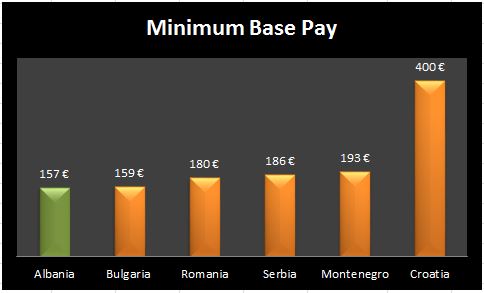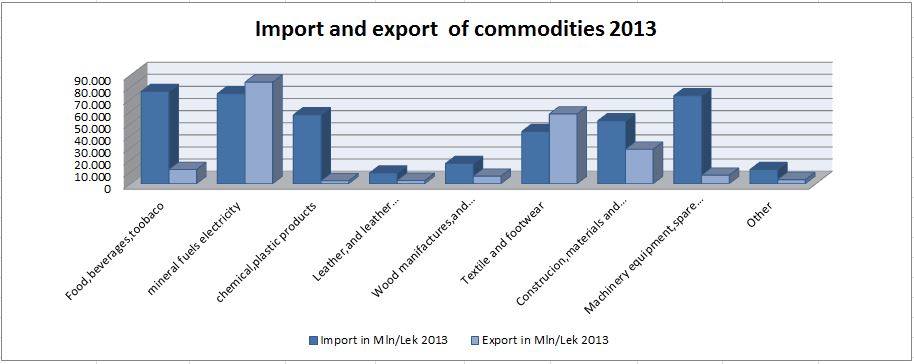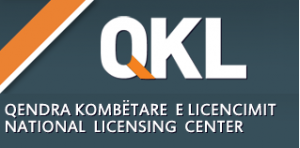Property, Economic Zones, and Buildings in Albania
Property Market Overview
In the last few years, Albania has made clear progress in a number of areas needed to allow the smooth running of real estate finance and real estate transactions. The promising potential of this market is primarily based on the growth of the economy, the price stability, the favorable tax system, the increase in urbanization as well as the steady trend of growing demand, particularly visible in the residential and office market.
Overall, there is a growing awareness among the government of the importance of the real estate sector and the need to push reforms to solidify and improve its legal and administrative framework.
A very significant element which guarantees the right to property is the registration of immovable property in the immovable property register offices (Articles 192-197 of the Civil Code). In each district are set up Local Immovable Property Registration Offices (LIPRO), which are responsible for the registration of all legal ownership titles of immovable assets, including agricultural land.
State Owned Property
State-owned property can be transferred to private operators in three forms:
– Sale by privatization.
– Leasing.
– Emphyteusis
The privatization process is used mostly in strategic sectors (banking, insurance, telecommunications, energy, etc.). See fact sheet No. 1.
The properties which are given in Emphyteusis are only properties owned by state institutions or state companies. The emphyteusis is executed by Ministry of Economy, Trade and Energy or local government institutions through competition.
A very attractive form, in actual conditions for businesses in production and service activities, is leasing state-owned property. Regarding buildings with a total surface area up to 200 m2, the lease is executed by the state owned company or the state institution without competition, if it is for a short-term lease (up to one year). In the case of buildings with a total surface area between 201 and 500 m2, the lease is executed through competition procedure, by the authority which exercises the right of the representative of the state property owner, of the company or state institution.
Rental rates for state-owned property (2013)[2]
| Location | Minimum Rent (ALL / m2 / month) |
| a) Production buildingsInner Tirana city Outer Tirana city Inner big cities Outer big cities Inner small cities Outer small cities b) Offices, shops and service agencies in airports and customs offices, and services agencies in ports c) Museums, historical, archeological and cultural buildings2 Inner Tirana city Other locations d) Machineries, equipment, technological lines e) Tanks, oil deposits, silos Inner Tirana and other big cities Other locations f) Free functional land
g) Sports parks inner cities outer cities | 300200 150 100 100 50 2500 1000 600 300 To be negotiated[3] 400 ALL/m3/month 200 ALL/m3/month 100 ALL/m3/month[4] 50 30 |
Rental incentives according to employment level (creation of new jobs)
| Employment level (yearly average) | Rental discount level |
| 20 – 50 employees | 10 % |
| 51– 100 employees | 20 % |
| 101 – 200 employees | 30 % |
| 0ver 201 employees | 40 % |
Rental incentives according to investment level
| Investment level (in million All) | Rental discount level |
| 50 – 80 | 10 % |
| 80– 100 | 20 % |
| over 100 | 30 % |
Source: Decision of the Council of Ministers no.529, dated 08.06.2011 “On the criteria, procedure, and mode of leasing, emphyteusis or other form of contract of state property”
The value of leasing contract or empheteusis can be set with the symbolic price of 1 euro when in the state property will be carried out industrial production activities with an investment value ten million or when it comes to solving social and economic problems in particular areas. The terms and conditions for bidding for these contracts are subject to the Council of Ministers case by case approval. See fact sheet No. 1.
Industrial Parks and free zones
The development of economic zones (industrial parks and free zones) is based on public private partnerships. The Law No. 9789, dated 19 July 2007 “On the establishment and operation of economic zones” and Council of Ministers Decision No. 860, dated 10 October 2007 “On approval of Regulation for the establishment and operation of economic zones” foresee the creation and functioning of economic zones, rights and obligations of the responsible “institutions, developers, operators”, type of activities etc.
Currently, the Government of Albania has approved 9 economic zones. Eight of them have the status of industrial parks and one has the status of free zone. More specifically they are as follows:
- Economic zone with the status of “Industrial Park” in Koplik, Shkoder.
- Economic zone with the status of “Industrial Park” in Shengjin, Lezhe.
- Economic zone with the status of “Industrial Park” in Spitalle.
- Economic zone with the status of “Industrial Park” in Vlore.
- Economic zone with the status of “Industrial Park” in Shkoder.
- Economic zone with the status of “Industrial Park” in Lezhe.
- Economic zone with the status of “Industrial Park” in Laknas, Tirane.
- Economic zone with the status of “Free Zone” in a territory in Vlora.
- Economic zone with the status of “Industrial Park” in Rrashbull, Durres.
Private Property
According to the Constitution, the property is acquired by gift, inheritance, purchase and any other classical manner provided in the Civil Code of the Republic of Albania. In each case, the acquisition goes through two phases:
- The acquisition of a right to ownership, through an act of a public authority or by means of notary deed (mainly purchase, endowment or contract for swaps of land).
- The completion of the transfer of ownership through the registration of the relevant act or contract within the Immovable Property Registration Office.
The most commonly used instrument for acquisition of ownership over property is the purchase contract. Pursuant to law no.7980 date 27.07.1995 “On the sale and purchase of land”, as amended, and law no.8337, date 30.04.1998 “On Transferring the Ownership of Agricultural Land, Forests, Pastures and Meadows”, there are some limitations concerning the right of foreigners to acquire land in Albania. Foreign natural and legal persons are entitled to purchase land, after investing on it, in accordance with a construction permit, up to a value not less than three times the value of land. The right to transfer ownership of agricultural land, forests, pastures and meadows is not granted to foreign natural or legal persons. Foreign natural or legal persons are entitled to lease agricultural land for a period of up to 99 years. Leasing of agricultural land, forests, pastures and meadows is carried out according to the Civil Code provisions. The limitations above are not applied if the foreign natural or legal persons establish a new Albanian company.
In accordance with the Stabilization and Association Agreement, which has entered into force in June 2009, Albania has acknowledged that the Albanian legislation will be progressively regulated no later than seven years from the entry into force of this agreement. The market for office space is growing rapidly, particularly in major cities such as Tirana, Durre and Vlora. The current trend is the construction of high-tech business centers which offers full services to renters and buyers of the office space. The demand for this kind of facility is increasing and the construction industry has responded by building high quality and technologically operational buildings.
Office space for sale in Tirana, Durres, Vlore, Albania (June 2013)*[i]
| Price of Land | DISTRICT OF TIRANA | Price per m2 | Price per m2 |
| Apartments and Offices | 300 – 3000 euro | 41.910- 419.000 ALL | |
| Price of Land | DISTRICT OF DURRES | ||
| Apartments and offices | 250 – 1600 euro | 34.925-223.520 ALL | |
| Price of Land | DISTRICT OF VLORA | ||
| Apartments and offices | 180-1300 euro | 25146-181.610 ALL |
Source: Leading real estate companies.
Office space for lease in Tirana, Albania (June 2013)
| Definition | Price per m2 | Price per m2 |
| Space for business | 8- 26 euro | 1117.6 – 3632.2 ALL |
| Parking | 50-160 euro/month | 6985-22352 ALL |
| Service costs | 1-2.5 euro/m2/month | 139.7-349.25 ALL |
Source: Leading real estate companies in Tirana
The prices stated in this fact sheet are averages, as they vary according to the specific location and the characteristic of buildings or sites.
[2] The Ministry of Economy, Trade and Energy, lines ministries, local government and other public institutions are the responsible entities for the implementation of this Decision of the Council of Ministers no. 529, dated 08.06.2011.
[3] Annual rent is valued upon the minimum current market value – MCMV, calculated as the difference of the initial value minus depreciation accounted for in years multiplied by the price index of the relevant month.
[4] For free land, floor rent is 100 ALL/m2/month; for free functional land, the monthly rental floor is 20% of the building monthly rate. The land under and around the building is included in the rental rate determined for the building.





